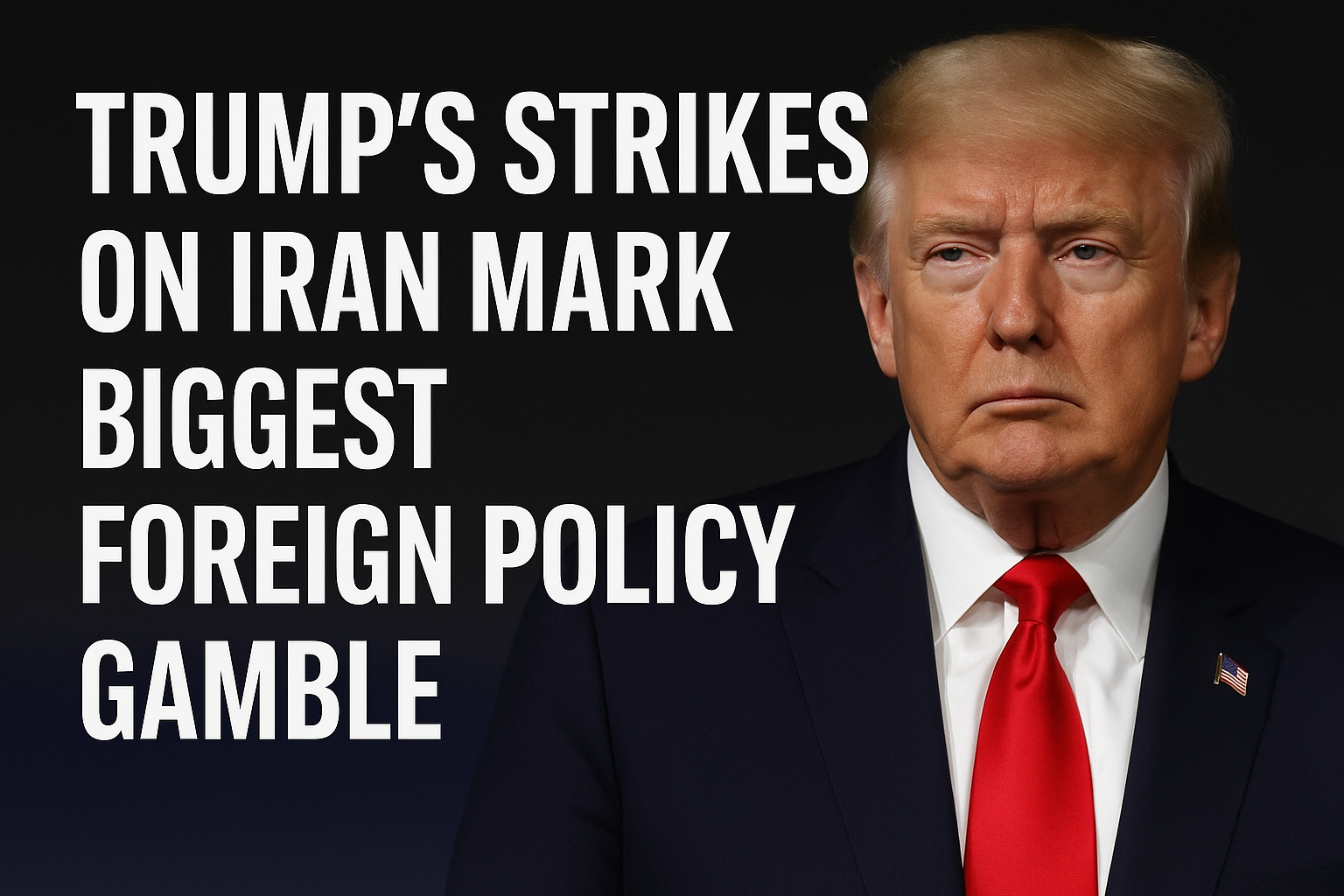WASHINGTON, June 22 (Reuters) – In a stunning reversal of his long-standing pledge to avoid entangling the U.S. in foreign wars, President Donald Trump has launched military strikes on Iran’s key nuclear facilities, joining Israel in a high-risk assault on its chief regional adversary.
This bold intervention—targeting fortified sites like Fordow, Isfahan, and Natanz—represents the most consequential and perilous foreign policy decision of Trump’s presidency, triggering both domestic and international uncertainty.
At a rally on Saturday, Trump warned Tehran to either pursue peace or face additional military action. Analysts say this gamble risks triggering severe Iranian retaliation, including threats to close the vital Strait of Hormuz, attacks on U.S. bases and allies across the Middle East, an escalation of missile strikes on Israel, and the mobilization of proxy militias worldwide.
Such developments could plunge the region into a broader, drawn-out conflict—ironically resembling the “forever wars” Trump once criticized as “stupid” and vowed to end.
“Iran’s conventional military has been degraded,” noted Aaron David Miller, a veteran U.S. diplomat. “But they have many asymmetric tools. This is far from over.”
Leading up to the strikes, Trump oscillated between military threats and diplomatic overtures aimed at pushing Iran back to the negotiating table. However, a senior White House official stated that Trump ultimately authorized the attack after concluding that Iran was not serious about reaching a nuclear deal.
The green light came after over a week of Israeli air assaults softened targets, clearing the path for a decisive American strike.
Impact on Iran’s Nuclear Program
Trump hailed the strikes as a “great success,” claiming they included “bunker-buster bombs” that hit Iran’s deeply buried Fordow site. Still, arms control experts caution that while the strikes may significantly delay Iran’s nuclear program, they won’t eliminate it.
Iran maintains its program is solely for peaceful purposes and denies pursuing nuclear weapons.
“Military action will likely push Iran to conclude that nuclear deterrence is essential, and diplomacy with the U.S. is futile,” warned the Arms Control Association. “Knowledge cannot be bombed out of existence. Iran may rebuild with even more resolve.”
Eric Lob, a Middle East expert at Florida International University, suggested Iran could retaliate by targeting American or Israeli “soft targets” across the globe. However, he also left room for the possibility of renewed negotiations—though from a position of significantly reduced leverage.
Iran’s immediate response signaled defiance. The Atomic Energy Organization declared that its national nuclear development would not be halted. A state TV commentator claimed that all U.S. personnel in the region were now legitimate targets.
Early Sunday, Iran’s foreign ministry vowed to defend itself “with full force” against what it termed “U.S. military aggression.”
Possibility of Regime Change?
While Trump has repeatedly denied pursuing regime change, some analysts warn that a full-scale Iranian reprisal could pull Washington further into that direction.
“Be cautious of mission creep,” said Laura Blumenfeld of Johns Hopkins University. “History is littered with failed U.S. moral crusades in the Middle East.”
Jonathan Panikoff, a former deputy U.S. intelligence officer, warned that if Iran’s leadership perceives an existential threat, it may retaliate with disproportionate force. Yet Tehran must also weigh the fallout—actions like shutting the Strait of Hormuz could backfire by harming allies like China and worsening global economic pressures.
At home, Trump’s decision faces growing scrutiny. Democrats in Congress are voicing concern, and even within his own MAGA base, the anti-war wing is raising alarms about deeper military engagement.
Just six months into his second term, Trump is now navigating a major global crisis—something he largely avoided during his first presidency. Despite branding himself as the candidate of “peace through strength,” his administration is now opening a third military front, after falling short of promises to end the wars in Ukraine and Gaza.
“Trump is back in the war game,” said Richard Gowan, U.N. director at the International Crisis Group. “His pitch as a peacemaker always sounded like a campaign slogan, not a real strategy.”





